How are financial advisors ‘framing’ their practices?
How are financial advisors ‘framing’ their practices?

In the current environment, financial advisors need to be more relevant than ever in the lives of their clients. How advisors “frame” their practice to clients is an important first step in creating a valued and lasting advisor-client relationship.
Ray Sclafani is the founder of ClientWise, a premier coaching company exclusively serving the financial-services industry. A professional certified coach and the holder of a master’s certification in neurolinguistics, Mr. Sclafani leads a firm that has trained thousands of financial advisors in advanced practice management principles and methodologies to achieve more consistent success. He says these principles are based on years of studying and analyzing the best practices of financial firms of all sizes—both here and abroad.
In his 2016 book, “You’ve Been Framed,” Sclafani tackles the opportunities financial advisors have “to create change by the way in which they conduct their practices.”
The core thesis of the book explores how financial advisors “are framed.” According to the introduction to the book, “The frame is the perspective outsiders have of your company. It may be accurate or false. Positive or negative. But if you haven’t actively nailed down what your business stands for—and what differentiates it from competitors—you’re likely reducing profits, talent, and the longevity of your firm.”
“You’ve Been Framed” outlines a process by which financial advisors can take control of their firm’s “frame” to attract prospects into their pipeline, win the next generation of clients, and deepen their businesses so they can “thrive long into the future.”
Integral to that process, says Sclafani, is the important first step of gaining a deep understanding of how your current clients view your firm—and the questions you should be asking to ascertain that answer. He calls this “The Client Conversation” and provides specific guidance on how to conduct it.
Five key question areas financial advisors should be asking clients are:
- “What is the one thing you value most about how my firm and I serve you?”
- “What is the one thing you would most like me to change, or improve, about my firm and how I serve you?”
- “If you were to describe the services that my firm and I offer to clients like yourself, what would you say?”
- “How would you describe what it is that we have achieved together?”
- “Among your other professional advisors, who do you trust the most and why?”
The key benefit of this part of the reframing process, says Sclafani, is having a data- and discovery-driven first step, within the valuable context of a frank and personal discussion with clients. Importantly, the conversation is not about financial planning or investments; rather, it’s about their opinions and needs and what they value most about your relationship.
He says, “Asking clients what they value about your firm and what they would change about your services can result in new insights and new ideas for you, and more personalized services for your clients.”
Many advisors featured in Proactive Advisor Magazine have reinforced Scalfani’s proposition in interviews with our publication.
They believe that offering a strong value proposition, focusing their practice on relationship building, and understanding and then exceeding client expectations are the keys to growing their practices.
Here are some of their insights on how they position, or frame, their practice to clients.
 Robert G. Ziegler • Wilmington, DE
Robert G. Ziegler • Wilmington, DE
Read full article
“I consider myself a financial advisor by profession and an educator at heart. My job is to help my clients understand the various major financial aspects of the world that may impact them, as well as the pros and cons of different approaches to handling them. If I’ve done my job well, our clients will understand what I’m recommending and why—and build a sense of personal ownership of their financial plan. …
“Conducting a thorough risk assessment for clients and then applying risk-management tools, especially for that second leg of longer-term growth investments, is extremely important. Over the past several years, I have been increasing the allocation of clients’ portfolios to a third-party manager who relies on a rules-based, tactical approach to investment risk management.
“When their models or indicators suggest that markets could be entering a serious move down, they will either lower market exposure or even go to 100% cash. This worked well during the downturn of February and March 2020.
“Their philosophy of mitigating market losses is compatible with my education of clients on concepts such as the mathematics of market losses, the time and gains required for portfolio recovery after a bear market, and the sequence-of-returns issue. While a risk-managed approach may not provide the highest returns in a roaring bull market, I believe it can add significant value for clients over full market cycles.”
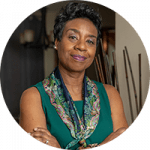
Diana Avery • Atlanta, GA
Read full article
“Our firm’s chief priority is to guide clients through ongoing education and financial planning that can adapt to changes in their life priorities. Through seeing how all of the financial pieces of their lives fit together, clients will hopefully be able to successfully navigate the path to financial independence and security for their retirement years.
“We are committed to excellence in our process of working with clients—through adding value and delivering highly personalized service. We treat our clients as we would want to be treated ourselves and strive to create meaningful long-term relationships. We act as a fiduciary, which means we are held to a high standard and work only in our clients’ best interests.
“As an independent firm, we can review a wide universe of products and services with clients and help guide them toward solutions that meet their unique needs and objectives. … I believe the [investment] managers that we work with provide several benefits for our firm and our clients. They can provide sophisticated, rules-based investment strategies based on their proprietary models.
“In building client portfolios, we are looking for strong diversification and risk management. I do not believe that most of our clients, especially those near or in retirement, should be simply invested in passive mutual funds that are fully exposed to market risk.”
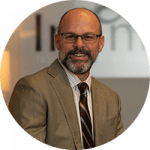
Andrew Zorovich • Huntsville, AL
Read full article
“I feel our firm is different from many advisory practices. In the traditional way of doing business, most clients would have a tax professional, an investment advisor, an insurance agent, and an estate planner—all in different locations. Most of the time, the advice that one professional gives can impact the advice of the other professionals, but rarely do these professionals ever talk with each other.
“At our office, we have access to bookkeepers, tax preparers, accountants, financial planners, investment managers, insurance agents, and estate-planning advisors. Our clients receive guidance from various professionals who can work together in a cohesive fashion. We believe this provides a well-rounded approach to a client’s overall financial health. Our goal is to help clients protect, grow, use wisely, and—over the long run—effectively bestow or transfer their assets. Our advisory firm’s business model is the primary driver of our ability to attract new clients. …
“Our firm also has an advisory board of clients. This serves several purposes. First, it helps us with our practice management by keeping us informed about client concerns and how we can best meet their needs. We are always seeking improvements in our process. Second, this helps build very strong relationships with clients on the board, and they enjoy getting together and meeting new people. Third, we find that this group can be an especially valuable resource in terms of providing referrals to people in their personal networks.”
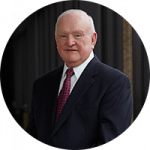
William Curry • Wilmington, DE
Read full article
“At Wealth Wisdom Group, our mission is clear: We help businesses and individuals find money they are losing unknowingly and unnecessarily, and in the process create a tax-efficient, personalized, and cohesive financial plan.
“I believe there is more opportunity to serve my clients by helping them avoid losses than by picking winners. Our firm has a philosophical and trademarked statement that we strongly believe in: ‘We help those who have made it, keep it.’ We want to build relationships with clients who have worked hard in their lives to achieve a level of financial success and guide them toward financial independence. This is a matter of helping them grow their assets and manage risk in many areas of their lives. …
“In addition to receiving referrals from accountants and attorneys, we have a number of ways we develop prospective client introductions: through current client referrals, online marketing efforts, financial education seminars, and direct mail. In all of these efforts, we invite clients to have what we call a ‘transformative conversation’ about their financial-planning questions and concerns.”
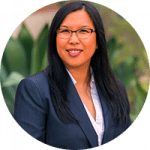
Michelle Mai • San Diego, CA
Read full article
“For more than a decade, my firm, College Planning Source, has focused on helping clients create comprehensive and strategic plans for college funding. We have worked with more than 1,200 clients and have developed a three-part system to help families identify and achieve their goals. A comprehensive college plan should include college funding, student development, and admissions. The three components need to be working together at the same time to produce the best outcome for a family. …
“We find that working with families on college funding often raises many additional financial questions and can lead to a more robust financial-planning relationship. We can help clients to implement financial-planning strategies that work within their budget to potentially maximize cash flow, avoid unnecessary transfers of wealth, and optimize their tax savings. We work with many families on a full financial plan, retirement planning, and investment planning and implementation. …
“We tend not to take a lot of risk with money earmarked specifically for college funding. We may be able to take more risk with clients looking over a longer time frame toward retirement. But, in the majority of the cases where I help clients with investment management, I am advocating for a well-diversified and risk-managed approach to investment planning no matter what. We often use the services of third-party money managers, many of whom offer active investment strategies with well-defined parameters around drawdowns. For most clients, there is a usually a role for this type of managed strategy approach.”
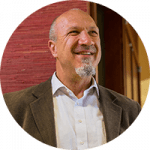
Ted Moyer • Center Valley, PA
Read full article
“Ultimately, our business success is a reflection of striving to do all things with excellence; exceeding client expectations; and building lifetime, multi-generational relationships with our clients. We work hard to provide services and programs to clients that help build a personalized relationship with our firm and keep them involved in an ongoing loop of providing feedback. …
“From a potential client’s very first exposure to our advisory firm, whether that is through a direct referral or having attended one of our financial education seminars, I want them to know about our values-based philosophy in working with clients. The take-home materials our seminar participants receive include my biography and background, an outline of my principles and beliefs, and a mention of my membership in The National Ethics Association. I review these materials with clients at our initial meeting.
“I believe that a foundation in humanistic principles is critical to our advisory firm’s success and can help define clients’ interactions with our firm. Values in life are vital to providing a ‘compass’ and ‘markers’ on the journey toward achieving goals. I think our values become the ‘why’ behind everything we do—it’s our motivation.”
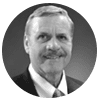 David Wismer is editor of Proactive Advisor Magazine. Mr. Wismer has deep experience in the communications field and content/editorial development. He has worked across many financial-services categories, including asset management, banking, insurance, financial media, exchange-traded products, and wealth management.
David Wismer is editor of Proactive Advisor Magazine. Mr. Wismer has deep experience in the communications field and content/editorial development. He has worked across many financial-services categories, including asset management, banking, insurance, financial media, exchange-traded products, and wealth management.
